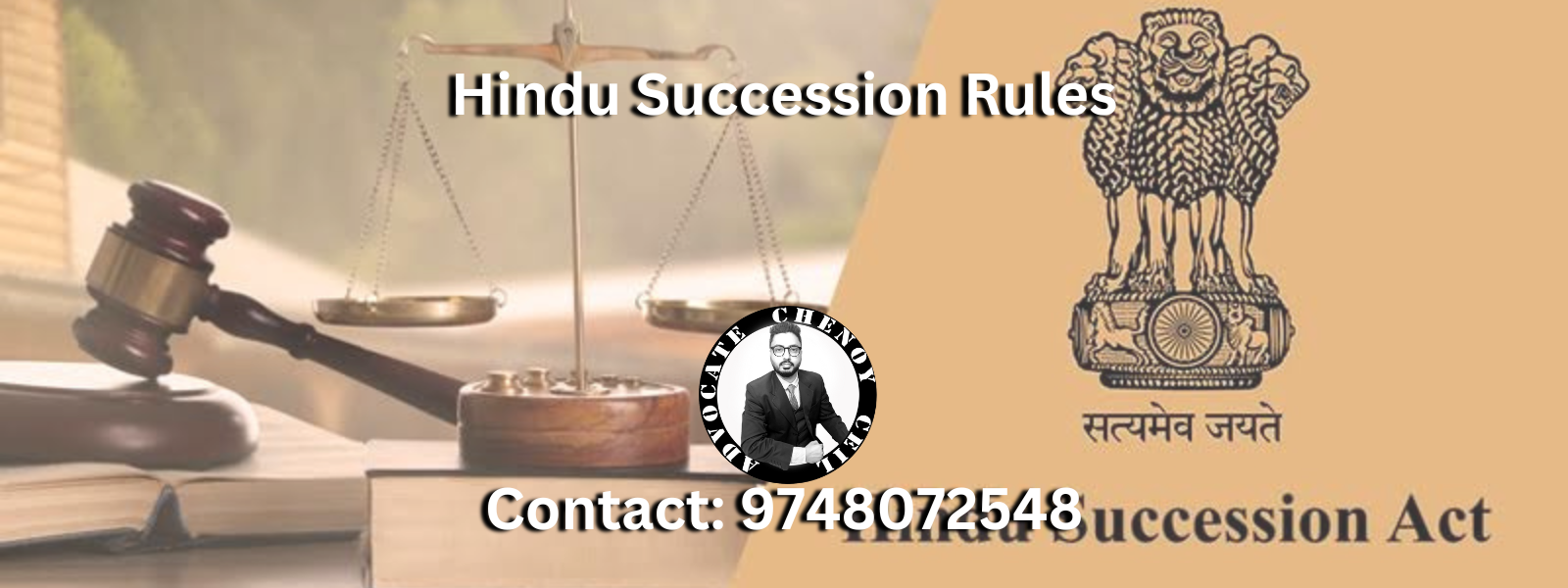The Hindu Succession Act, 1956 governs the Inheritance and Succession amongst Hindus.
General Rules of Succession amongst Hindus
The law of succession deals with the rules devolution of property in case where a person or individual dies without making a Will. This Act is applicable to all Hindus, incorporates intestate succession and testamentary succession.
Applicability of the Hindu Succession Act, 1956:
Applicability of the Hindu Succession Act, 1956 is given under Section 2. This Act is applicable to –
- The Act is applicable to whole of India.
- Any person, who is Hindu by religion or any of its forms or developments, including a Virashaiva, a Lingayat or a follower of the Brahmo, Prarthana or Arya Samaj
- Any person who is a Buddhist, Jaina or Sikh by religion
- Any other person who is not a Muslim, Christian, Parsi, Jew, unless it is proved that such person would not be governed by Hindu law or custom.
The Act shall not apply to members of any Scheduled Tribe within the meaning of clause (25) of article 366 of the Constitution, unless otherwise directed by the Central Government by a notification in the Official Gazette.
Following person qualifies to be a Hindus, Buddhists, Jainas or Sikhs:
- Any legitimate or illegitimate child, both of whose parents are Hindus, Buddhists, Jainas or Sikhs by religion.
- Any legitimate or illegitimate child, one of whose parents is a Hindu, Buddhist, Jaina or Sikh by religion and who is brought up as a member of the tribe, community, group or family to which such parent belongs or belonged.
- Any person who is a convert or reconvert to the Hindu, Buddhist, Jaina or Sikh religion.
Types of Succession:
Testamentary Succession – When the succession of property takes place or governed by the Will or testament, it is called testamentary succession. A Will or testament can be made by a Hindu male or female but it must be valid and legally enforceable. When a Will is made, the succession of the property is according to the Will and not according to the inheritance of the property. If the Will is not valid or legally enforceable then the distribution of the property will be according to the law of inheritance.
Intestate Succession:
Intestate Succession means when a person dies intestate meaning without making a Will or testament then the property will be distributed according to the law of the inheritance.
General Rules of Succession in Hindus:
- Section 18 (Full blood preferred to half-blood) –This section provides that the heirs who are related to an intestate by full blood shall be preferred to heirs related by half blood, only if the relationship is same in every other aspect.
- Section 19 (Mode of Succession of two or more heirs): This Section provides that if two or more heirs succeed together to the property of an intestate, they shall take the property –(a) Per capita and not per stirpes (unless otherwise expressly provided in the Act); and(b) As tenants-in-common, and not as joint tenants.
- Section 20 (Right of a child in womb) – This Section provides that if a child was in the womb when the intestate died and subsequently born alive then he has the right to inherit the property as if he was born before the death of the intestate.
- Section 21 (Presumptions in cases of simultaneous deaths) – Where two persons have died in circumstances rendering it uncertain whether either of them, and if so which, survived the other, then, for all purposes affecting succession to property, it shall be presumed, until the contrary is proved, that the younger survived the elder.
- Section 22 (Preferential right to acquire property in certain cases) –Thissection confers a preferential right to acquire property. This means if an intestate’s property has devolved upon two or more heirs of Class I of the Schedule, so if one of them wishes to dispose of his interest, then other heirs have preferential right to purchase. Meaning thereby, he cannot sell his interest or share to any other person, without first offering it to other heirs of Class I.
Landmark Cases Relating to Succession in Hindus:
“In the case of Prakash v. Phulavati, of 2015 judgment, a two-judge bench had held that if the coparcener (father) had passed away prior to 9 September 2005 (date on which the amendment came into effect), his daughter would have no right to the coparcenary property.”
“In the case of Danamma v. Amar of 2018, two-judge bench had held that the two daughters in this matter would get a share in the property, even if their father had passed away in 2001.”
“In the case of K Laxmanan vs Thekkayil Padmini & Ors – it was held that burden of proof is on profounder. He has to prove legality & genuineness of Will by proving absence of suspicious circumstances, testamentary capacity and signature of testator.”
Conclusion:
This article provides clear knowledge on General Rules of Succession along with land mark cases so that anyone can understand the importance of this article easily. Section 18 to 22 of the Hindu Succession Act, 1956 is given under this article.
